Living on Your Boat in Florida: What You Need to Know To Liveaboard
Florida is a state that is known for its beautiful beaches and waterways. Many people are drawn to the state because of the opportunity to live on their boats. Living on a boat in Florida can be a unique and exciting experience. However, there are many factors to consider before making the decision to live on a boat.
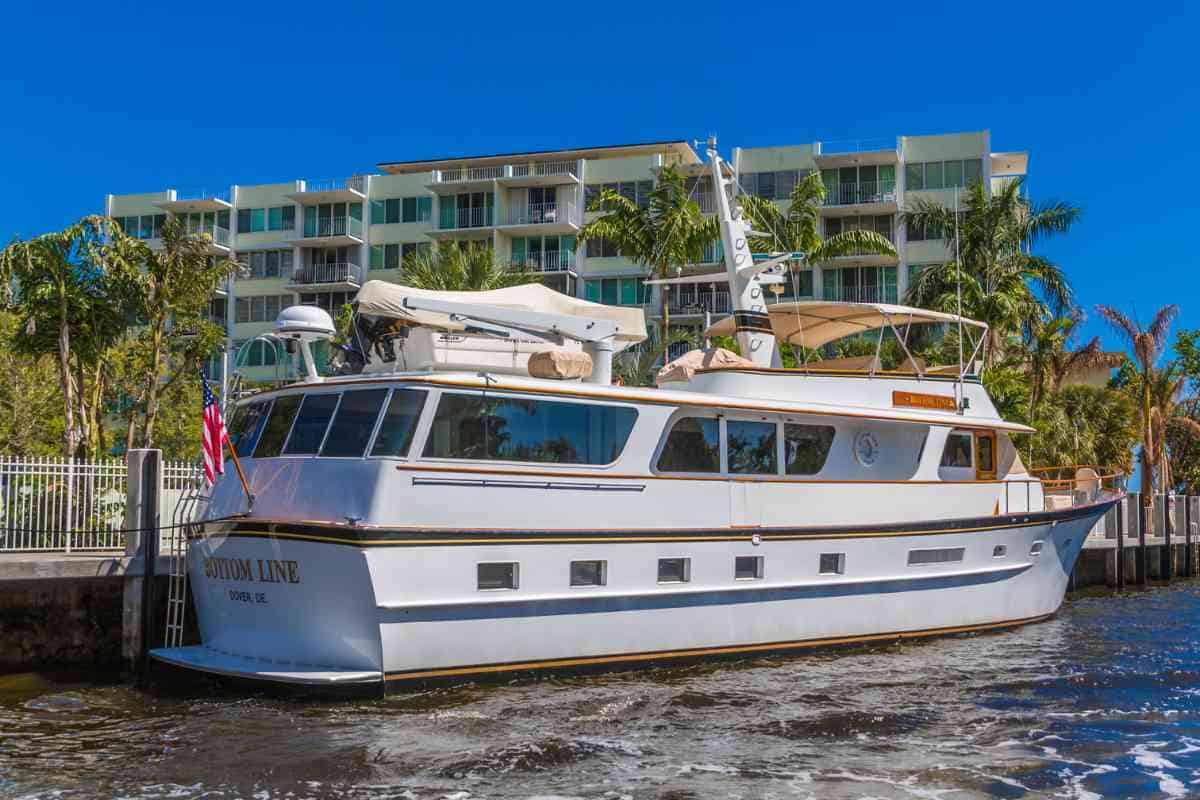
Can I live on a boat in Florida?
Yes, Florida law allows liveaboards, but regulations vary. It’s important to research marinas, plan for severe weather, and ensure you have proper ventilation and air conditioning. Living on a boat in Florida is cost-effective and offers boaters freedom, flexibility, stress-free living, a sense of community, and a connection to nature.
One of the most important factors to consider when deciding to live on a boat in Florida is the marina. There are many marinas throughout the state that offer different amenities and services. It is important to research different marinas to find one that fits your needs and budget. Some marinas offer laundry facilities, showers, and even pool access. Others may be more basic and offer fewer amenities.
Another important consideration when living on a boat in Florida is the weather. Florida is known for its hurricanes and tropical storms. It is important to have a plan in place in case of severe weather. This may include having a hurricane plan and ensuring that your boat is properly secured. Additionally, it is important to consider the heat and humidity in Florida. It can be uncomfortable to live on a boat during the hot summer months without proper ventilation and air conditioning.
Key Points From Reading This Article
Living on a boat in Florida can be a unique and rewarding experience, but there are many factors to consider before making the decision to do so. Here are some key points to keep in mind:
- Florida law allows for liveaboards, but regulations vary by county and marina.
- Some marinas have waiting lists for liveaboard slips, so plan ahead.
- Living on a boat can be more affordable than traditional housing, but there are additional costs to consider, such as maintenance and marina fees.
- Boats require regular upkeep and repairs, so it’s important to have the necessary skills or be able to hire a professional.
- Living on a boat requires a certain level of self-sufficiency, as access to amenities may be limited.
- Boats can be subject to weather-related hazards, such as hurricanes, so it’s important to have a plan in place for emergencies.
- Living on a boat can provide a unique sense of community and connection to nature.
Overall, living on a boat in Florida can be a fulfilling and adventurous lifestyle, but it’s important to do thorough research and consider all factors before making the decision to do so.
Why do people prefer living on a boat in Florida?
Florida is a state that is known for its beautiful beaches, warm weather, and sunny skies. Many people choose to live on a boat in Florida because it allows them to take advantage of all that the state has to offer. Here are some reasons why people prefer living on a boat in Florida:
- Cost-effective: Living on a boat in Florida can be more cost-effective than living in a traditional home or apartment. Boats require less maintenance and upkeep than homes, and the cost of living on a boat can be significantly lower than the cost of living in a house or apartment.
- Freedom and flexibility: Living on a boat in Florida provides a sense of freedom and flexibility that is hard to find in a traditional home. Boat owners can move their homes to different locations, and they can enjoy a variety of water-related activities, such as fishing, swimming, and boating.
- Stress-free living: Living on a boat in Florida can be a stress-free way of life. Boat owners can enjoy the peace and tranquility of being surrounded by water, and they can escape the hustle and bustle of city life.
Living on a boat in Florida is not for everyone, but for those who enjoy the water and the outdoors, it can be a wonderful way of life. With its warm weather, beautiful beaches, and abundant waterways, Florida is the perfect place to live on a boat.
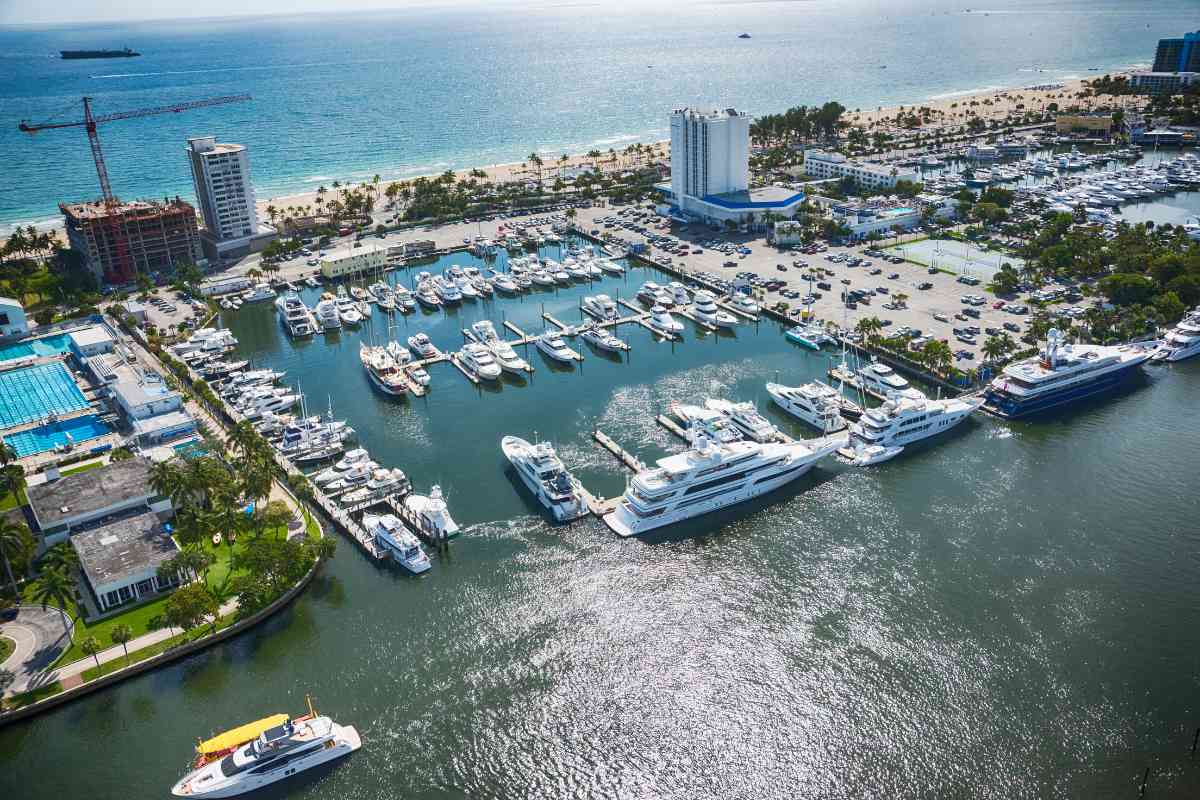
Living on a Boat in Florida: Regulations and Restrictions
Legal Restrictions
Living on a boat in Florida is legal, but it is subject to certain restrictions. The Florida Fish and Wildlife Conservation Commission (FWC) regulates the use and occupancy of boats in Florida.
The FWC requires that boats used for living purposes must be properly registered and have a valid permit. The permit is valid for two years and must be renewed thereafter. The boat must also meet certain safety standards, such as having a working fire extinguisher and smoke detector.
Possessions
Living on a boat in Florida means that you will have limited space for your possessions. It is important to keep in mind that the boat must remain seaworthy and not be overloaded with personal belongings.
Additionally, the boat must have a working toilet and sewage system. It is illegal to discharge sewage into Florida waters, so the boat must have a holding tank or a marine sanitation device.
Taxes
Living on a boat in Florida may have tax implications. Boats used for living purposes are subject to property tax. The amount of tax varies depending on the value of the boat and the county where it is registered.
However, there are exemptions available for boats that are used as a primary residence. It is recommended to consult with a tax professional to understand the tax implications of living on a boat in Florida.
How to Find a Place to Live on Your Boat in Florida
Living on a boat in Florida can be a dream come true for many people. The state is home to numerous marinas and anchorages, making it a popular destination for boaters. However, finding a place to live on your boat in Florida can be a challenge. Here are some tips to help you find the right spot:
1. Research marinas and anchorages: Before you set sail, do some research on the marinas and anchorages in the part of Florida where you want to live. Look for marinas that offer liveaboard slips or allow liveaboards on a month-to-month basis. Some anchorages may also allow liveaboards, but be sure to check local regulations and restrictions.
2. Check availability: Once you have a list of potential marinas and anchorages, contact them to check availability. Some marinas have waiting lists for liveaboard slips, so it’s important to plan ahead. Be sure to ask about the amenities and services offered, such as laundry facilities, showers, and Wi-Fi.
3. Consider the location: When choosing a marina or anchorage, consider the location. Is it close to shopping, restaurants, and other amenities? Is it in a safe area? Is it protected from storms and rough seas? These are all important factors to consider when choosing a place to live on your boat.
4. Know the regulations: Each marina and anchorage may have different regulations and restrictions for liveaboards. Some may require proof of boat insurance or a minimum boat length. Be sure to read the rules and regulations carefully before making a decision.
5. Be prepared: Living on a boat requires a certain level of self-sufficiency. Make sure your boat is equipped with all the necessary amenities, such as a functioning toilet, shower, and kitchen. You’ll also need to be prepared for storms and other weather events.
By following these tips, you can find the perfect place to live on your boat in Florida. Remember to do your research, plan ahead, and be prepared for anything.
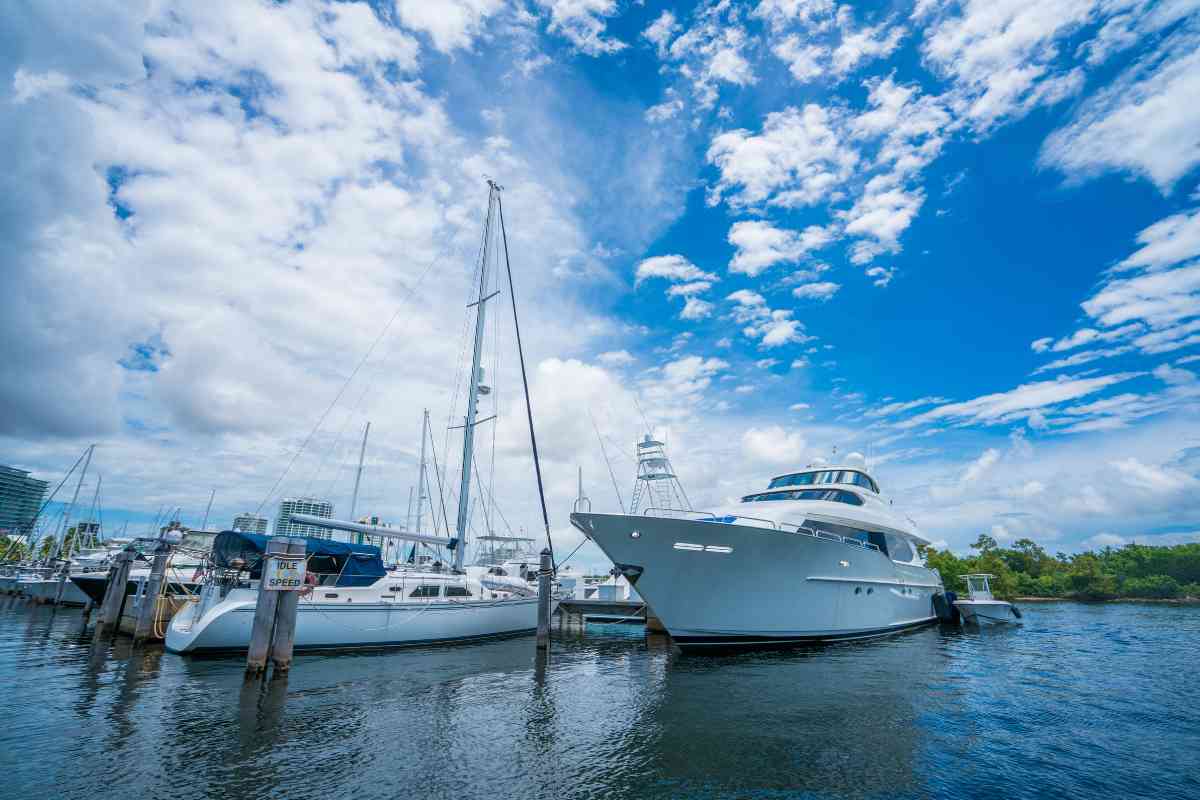
What Type of Boat can I Live on?
Living on a boat in Florida can be an exciting and adventurous lifestyle, but it’s important to choose the right type of boat to ensure your comfort and safety.
Firstly, it’s important to note that not all boats are suitable for living aboard. Smaller boats, such as dinghies or kayaks, are not designed for extended stays and do not have the necessary amenities for comfortable living.
For those looking to live aboard, a sailboat or powerboat with a minimum length of 30 feet is recommended. This size allows for a comfortable living space, including a galley, head, and sleeping quarters.
It’s also important to consider the type of boat you choose. A sturdy, seaworthy vessel is essential for living aboard in Florida, where weather conditions can be unpredictable. Boats with a deep draft and a full keel are generally more stable and comfortable in rough seas.
When choosing a boat for living aboard, it’s important to consider your individual needs and preferences. Do you prefer a spacious living area or a smaller, cozier space? Do you plan to travel extensively or stay in one location? These factors can help determine the best type of boat for your lifestyle.
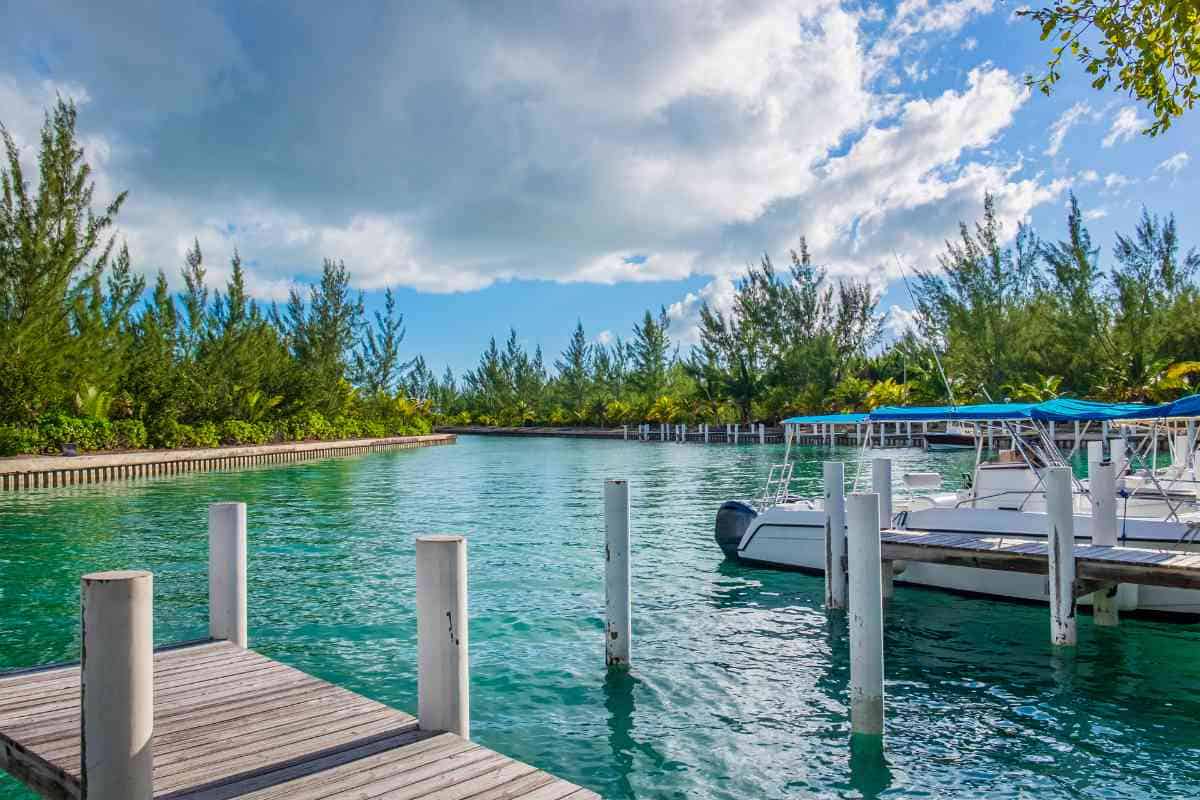
What Is Considered a Liveaboard in Florida?
In Florida, a liveaboard is defined as a person who uses their boat as their primary residence for at least 10 days out of every 30 days. This means that if you spend more than 10 days out of every 30 living on your boat, you are considered a liveaboard by the state of Florida.
Liveaboards in Florida are subject to certain regulations and requirements. For example, if you are living on your boat in a marina, you may be required to pay a liveaboard fee in addition to your slip rental fee.
Additionally, liveaboards are required to have certain safety equipment on board, such as a working smoke detector and fire extinguishers.
It’s important to note that not all marinas in Florida allow liveaboards. Some marinas have restrictions on how long you can stay on your boat, while others prohibit liveaboards altogether. Before making plans to live on your boat in Florida, it’s important to research marinas in the area to find one that allows liveaboards and meets your needs.
Are Houseboats Legal in Florida?
Houseboats are allowed in Florida, but there are certain regulations that must be followed.
According to Florida law, a houseboat is considered a vessel if it is used primarily as a means of transportation on water. Houseboats that are not used for transportation are considered floating structures and are subject to different regulations.
Houseboats that are used for transportation must comply with all state and federal boating laws, including having proper navigation lights, life jackets, and fire extinguishers on board.
In addition, houseboats must be registered with the Florida Department of Highway Safety and Motor Vehicles, and must display the proper registration numbers and decals.
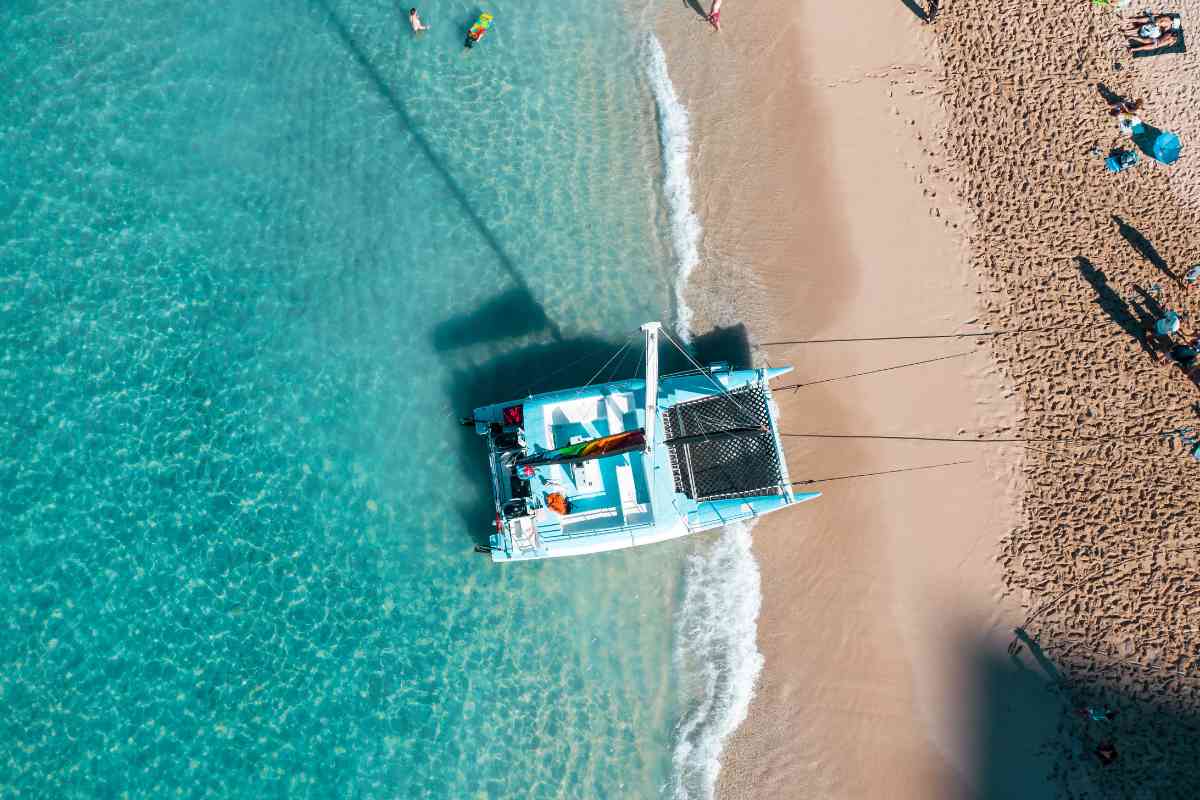
When are They Not?
Houseboats that are not used for transportation are considered floating structures and are subject to different regulations. These houseboats must obtain a building permit from the local building department and must comply with all local zoning and building codes.
It’s important to note that some local jurisdictions in Florida may have additional regulations regarding houseboats. Before purchasing or living on a houseboat, it’s important to research the local laws and regulations in the area where you plan to live.
Overall, houseboats can be a legal and viable option for living in Florida, but it’s important to ensure that all regulations are followed to avoid any legal issues.
Cost of Living on a Boat in Florida
Budgeting
Living on a boat can be a cost-effective way to enjoy the Florida lifestyle, but it’s important to budget accordingly. Some expenses to consider include the cost of the boat itself, maintenance and repairs, fuel, insurance, and groceries. While living on a boat can be cheaper than living in a traditional home, unexpected expenses can quickly add up.
Pro tip: If you’re considering moving to Florida to live on a boat, you should definitely wait to purchase your new boat until you get here. Boats are much cheaper in Florida!
Marinas and Slip Fees
Marinas are a popular option for those looking to live on their boats in Florida. Slip fees vary depending on the location and amenities offered by the marina. Some marinas offer amenities such as electricity, water, and Wi-Fi, while others may only offer basic services. It’s important to research different marinas and their fees to find the best option for your budget.
Other Costs
In addition to the cost of the boat and slip fees, there are other costs to consider when living on a boat in Florida. These may include:
- Insurance: Boat insurance is required by law in Florida and can vary in cost depending on the size and type of boat.
- Maintenance and repairs: Boats require regular maintenance and repairs, which can be costly. It’s important to factor these costs into your budget.
- Fuel: Living on a boat requires fuel for transportation and electricity. Fuel costs can vary depending on the size and type of boat, as well as the distance traveled.
- Groceries: Living on a boat requires careful planning when it comes to grocery shopping. Limited storage space and refrigeration can make it difficult to stock up on groceries, and prices may be higher at marina stores.
Living on a boat in Florida can be a unique and rewarding experience, but it’s important to budget carefully and consider all of the associated costs. By researching different marinas and planning for unexpected expenses, it’s possible to enjoy the Florida lifestyle while living on a boat.
Weather and Climate
Florida is known for its warm and sunny weather, making it a popular destination for boaters. However, it is important to note that the state experiences a subtropical climate, which can bring about certain challenges.

Tropical Storms
Florida is prone to tropical storms and hurricanes, which can bring about strong winds, heavy rain, and dangerous waves. It is important for boaters to be aware of the weather forecast and to have a plan in place in case of a storm.
Boaters should also ensure that their boat is equipped with the necessary safety equipment, such as life jackets, flares, and a first aid kit. It is also recommended that boaters have a reliable means of communication, such as a marine radio, in case of an emergency.
Insects
Florida is home to a variety of insects, including mosquitoes and no-see-ums, which can make outdoor activities uncomfortable. Boaters should bring insect repellent and consider installing screens on their boat to keep insects out.
It is also important to note that some insects, such as fire ants, can be dangerous and should be avoided. Boaters should be aware of their surroundings and take precautions to avoid contact with potentially harmful insects.
Living on a Boat in Florida: Amenities and Maintenance
Electricity
One of the most important amenities for those living on a boat is electricity. Most boats are equipped with a battery bank that can be charged by the boat’s engine or by shore power. In Florida, many marinas offer shore power hookups for a fee. It is important to make sure that the boat’s electrical system is in good condition to avoid any potential safety hazards.
Boat owners should also be aware of their power consumption and make sure that they do not overload the battery bank. This can be done by installing energy-efficient appliances and turning off unnecessary electronics when not in use.
Maintenance
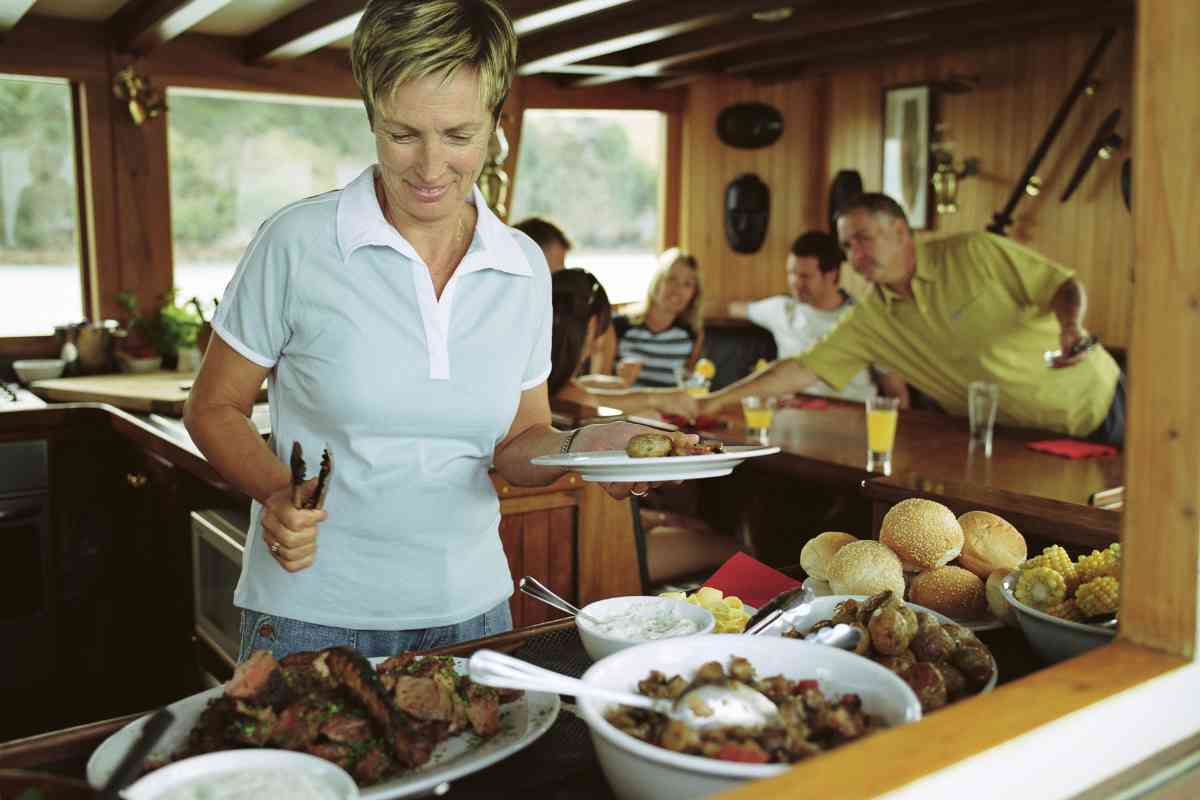
Maintenance is a crucial aspect of living on a boat in Florida. Boats are exposed to harsh marine environments that can cause wear and tear on the vessel. It is important to regularly inspect the boat’s systems and components to ensure that everything is functioning properly.
Boat owners should also be aware of the state’s environmental regulations when it comes to maintenance. Florida has strict laws regarding the discharge of sewage and other waste products from boats. It is important to properly dispose of waste to avoid any fines or penalties.
In addition, boat owners should also be prepared for hurricanes and other severe weather events. This may involve securing the boat in a safe location or taking other precautions to minimize damage.
Living on a boat in Florida can be an enjoyable and unique experience, but it also requires careful planning and maintenance. By ensuring that the boat’s amenities are in good condition and that proper maintenance is performed regularly, boat owners can enjoy their life on the water with peace of mind.
Living on a Boat in Florida: Locations and Culture
Key West
Key West is a popular destination for liveaboards in the Florida Keys due to its tropical climate, crystal-clear waters, and laid-back lifestyle. The city is home to several marinas that cater to liveaboard vessels, offering amenities such as laundry facilities, showers, and pump-out stations. The liveaboard community in Key West is tight-knit, with many social events and gatherings organized throughout the year.
St. Pete
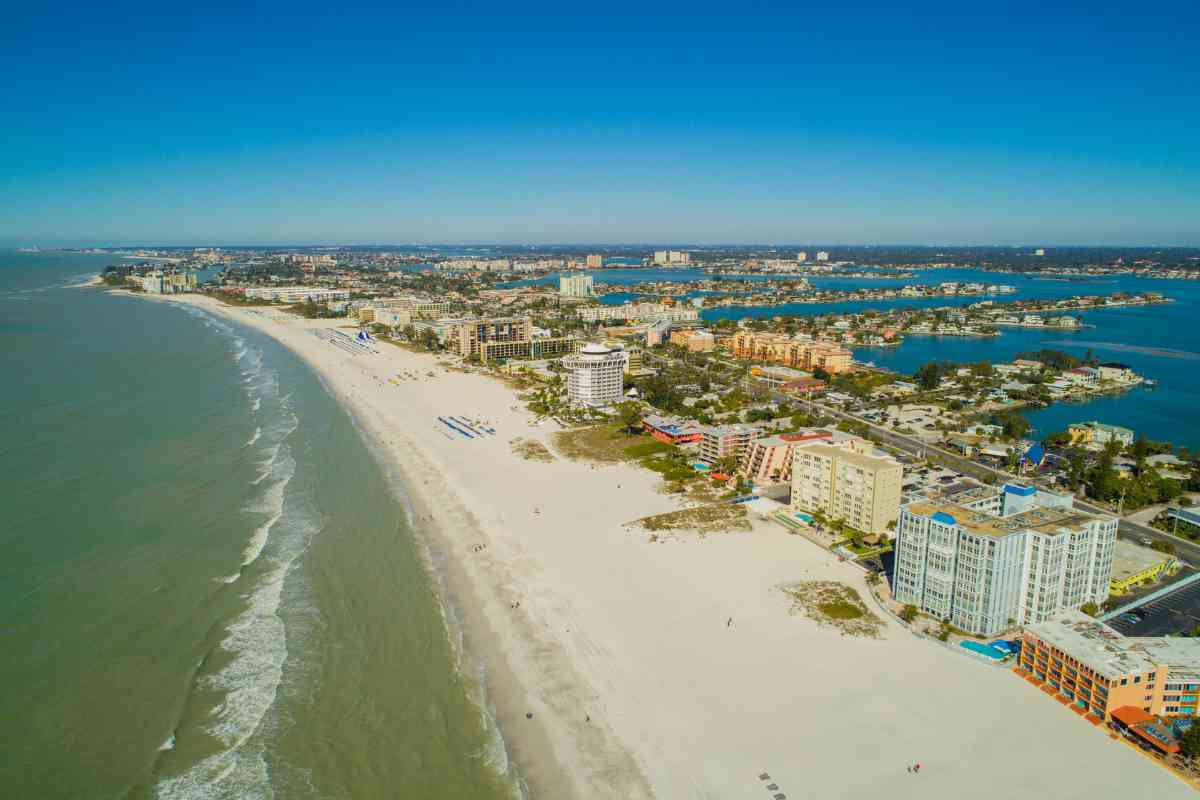
St. Pete is located on the west coast of Florida and is home to several marinas that allow liveaboards. The city has a vibrant downtown area with plenty of restaurants, bars, and shops, making it an attractive location for liveaboards who want to be close to the action. The St. Pete liveaboard community is diverse, with many retirees and working professionals calling the marinas home.
Tampa Bay
Tampa Bay is a large body of water that is home to several marinas that allow liveaboards. The area is known for its warm climate, beautiful beaches, and excellent fishing. The liveaboard community in Tampa Bay is active, with many organized events and gatherings throughout the year.
Party Culture
Florida is known for its party culture, and many liveaboards embrace this lifestyle. From Key West to St. Pete, there are plenty of opportunities to socialize and meet new people. Many marinas organize events such as potlucks, happy hours, and holiday parties, making it easy for liveaboards to connect with their neighbors.
In conclusion, Florida is a fantastic place to live on a boat, with plenty of locations that cater to liveaboards. Whether you’re looking for a tight-knit community or a lively party scene, there’s something for everyone in Florida.
What to Consider When Living Aboard Your Boat in Florida
Living aboard a boat in Florida can be an exciting and unique experience. However, it is important to consider some factors before making the decision to do so. Here are some things to keep in mind:
Marina Fees
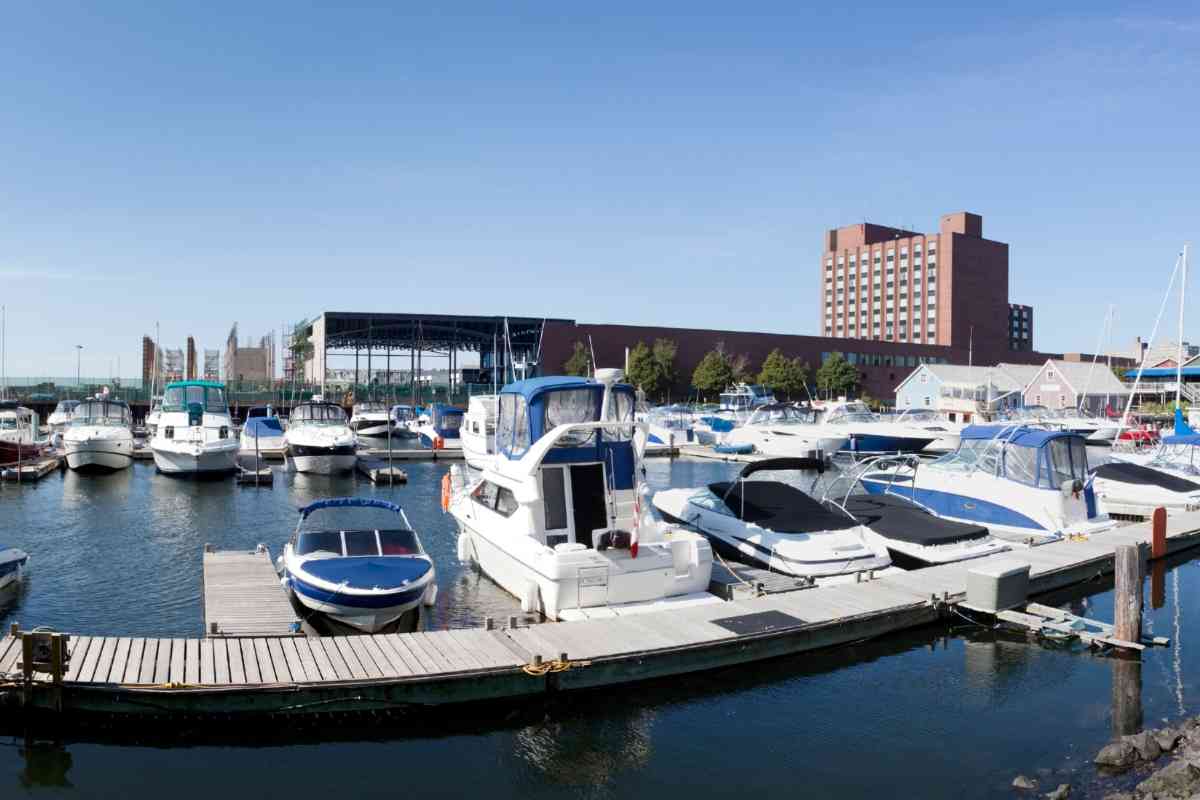
The cost of living aboard your boat in Florida can vary greatly depending on the marina you choose. It is important to research the marinas in the area and compare their rates and amenities. Some marinas may offer additional services such as laundry facilities, showers, and on-site restaurants.
Weather Conditions
Florida is known for its beautiful weather, but it can also bring some challenges. Hurricanes and tropical storms can be a serious threat to boats, and it is important to have a plan in place in case of severe weather. Additionally, the heat and humidity can be uncomfortable, so it is important to have proper ventilation and air conditioning on board.
Storage and Space
Living on a boat means you will have limited storage and living space. It is important to consider what items are essential and what can be left behind. Additionally, it is important to have a plan for storing items that are not in use, such as seasonal clothing.
Maintenance
Boats require regular maintenance to keep them in good condition. Living aboard your boat means you will be responsible for maintaining the vessel, including cleaning, repairs, and upkeep. It is important to have a budget and plan in place for these expenses.
Regulations
Florida has regulations in place for those who live aboard their boats. It is important to research and comply with these regulations, which can include requirements for sewage disposal and safety equipment on board.
Overall, living aboard your boat in Florida can be a unique and rewarding experience. However, it is important to consider these factors before making the decision to do so.
Frequently Asked Questions
How much is a boat you can live on?
The cost of a boat you can live on can vary widely depending on factors such as the size, age, and condition of the vessel. Houseboats and liveaboard boats can range from tens of thousands to millions of dollars. It’s important to research and consider all costs associated with boat ownership, such as maintenance, insurance, and docking fees.
Can you live on a boat in Miami?
Yes, you can live on a boat in Miami. Miami has several marinas and waterways that allow liveaboard boats. However, it’s important to check with the marina or local authorities for any restrictions or regulations that may apply.
Where can I live on my boat in Florida?
Florida has many options for living on a boat, including marinas, anchorages, and mooring fields. Some popular liveaboard communities in Florida include Stuart, Key West, and St. Petersburg. It’s important to research and consider all factors, such as amenities, location, and fees, when choosing a place to live on your boat in Florida.
Can you live on your boat in a marina in Florida?
Yes, you can live on your boat in a marina in Florida. Many marinas in Florida allow liveaboard boats, but it’s important to check with the marina for any restrictions or regulations. Some marinas may have limitations on the number of liveaboard boats they allow, or may require certain amenities or fees for liveaboard status.
How long can you live on a boat in Florida?
The length of time you can live on a boat in Florida can vary depending on the marina or anchorage regulations. Some marinas may allow long-term liveaboard status, while others may have limitations on the length of stay. It’s important to research and consider all factors, such as fees, amenities, and regulations, when choosing a place to live on your boat in Florida.
Can you live on a houseboat in Florida?
Yes, you can live on a houseboat in Florida. Houseboats are a popular option for living on the water in Florida, and there are many marinas and waterways that allow houseboat living. It’s important to research and consider all factors, such as size, amenities, and fees, when choosing a houseboat to live on in Florida.
